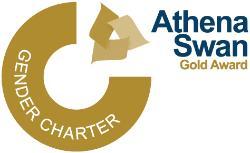Disability bitesize: disability and gender
Published: 14 March 2023
Both Neurodiversity Celebration Week and International Women's Day fell in March. Here, SHW Disability Champion Stefanie Krauth reflects on the intersection between gender and disability, a complex but important area for SHW colleagues to consider...
Both Neurodiversity Celebration Week and International Women's Day fell in March. Here, SHW Disability Champion Stefanie Krauth reflects on the intersection between gender and disability, a complex but important area for SHW colleagues to consider...

Last month I wrote about ableism in research, highlighting a recent review on Autism research and ableist language. And, yet, I completely forgot to mention that it was Neurodiversity Celebration Week from 15 to 19 of March 2023! It was also International Women’s Day on 08 March 2023!
Neurodiversity Celebration Week was founded in 2018 by a neurodivergent teenager who wanted to change the way learning and working differences were perceived, taking the focus away from the challenge-first way of thinking and instead take a balanced view of an individual’s unique strengths, talents, and challenges.
International Women’s Day was created to bring attention to gender equality, women’s rights and violence against women. This year’s International Women’s Day actually highlighted the intersection between gender and disability! Disabled women face the same obstacles as non-disabled women as well as additional barriers and discrimination. Disability can exacerbate gender discrimination and violence much like gender can exacerbate disability issues. On 08 March, during International Women’s Day, the World Bank launched a toolkit on including women with disabilities in World Bank operations, aiming to support their teams to design disability- and gender-inclusive operations with useful guidelines and examples for other stakeholders.
Neurodivergences are invisible disabilities. As with other disabilities, many of the challenges faced by neurodiverse people are not intrinsic to the person but a factor of the environment and systems they are placed in, which were often designed for the majority population. The same can be said about gender-based challenges. They are not a factor of biological or behavioural differences (such as childbearing and -rearing), but of a society originally built by and for men. The intersection of gender and disability (and other characteristics such as ethnicity, socioeconomic background, sexuality etc) is interesting and highly complex and is a focus for the Athena Swan SAT and working groups in Health and Wellbeing.
So, while we move forward with our efforts to make SHW, the university, and society a more inclusive place for all, let’s take a minute to celebrate the women and neurodivergents in our school! We estimate that around 20% of all people are neurodivergent – so that would be around 1–2 people in each of the new workspaces in Clarice Pears.
I hope you will have seen my email highlighting Neurodiversity Celebration Week and some of their very interesting webinars. Hopefully next time, we can organise our own little celebration...
Meanwhile have a great month!
ps I am fresh out of ideas for what to write about in the disability bitesize section for Hawkeye!
So I thought I’d use the opportunity to ask about which topics you would like to read in the future. Are there any topics on which you wish there was more awareness about in SHW and in general? Are topics you would like to learn more about? Are there any practical aspects you would like to have highlighted? Let me know either via email to Stefanie.Krauth@glasgow.ac.uk or using the anonymous SHW suggestions, comments and questions box.
You can also use the same routes if you want to highlight any issues you’d want me to champion towards SHW and the university.
Stefanie Krauth
SHW Disability Champion
Research Associate (General Practice and Primary Care)
First published: 14 March 2023


